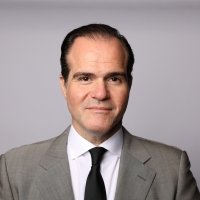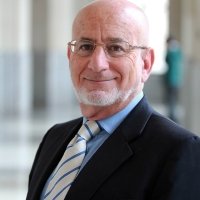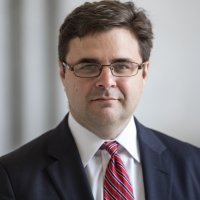Moving Day: Nearshoring Opportunities in Latin America
The COVID-19 pandemic has caused massive economic dislocations, including the widespread loss of jobs and livelihoods, declining GDP, and the shrinking of global commerce. Global value chains—involving critical raw materials or parts of manufactured goods that cross borders multiple times before becoming a finished product—experienced similar disruptions. In a February 2021 executive order, President Biden called on U.S. government agencies to identify risks to supply chains and devise strategies to address these vulnerabilities. He emphasized efforts to “revitalize and rebuild domestic manufacturing capacity” by bringing jobs overseas back to the United States, a process known as “reshoring.” U.S.-China competition in economic and other spheres is a subtext to this effort.
As Latin America and the Caribbean seek paths out of the pandemic’s economic devastation, can “nearshoring,” rather than “reshoring,” bring prosperity to U.S. neighbors in the Americas, thereby enhancing stability and reducing migratory pressures? Especially as the Biden administration seeks to address the root causes of migration from Central America’s Northern Triangle, what would it take for the lens to broaden to include the Caribbean, Central America, Mexico, and northern South America?
The event featured a keynote conversation with Inter-American Development Bank President Mauricio Claver-Carone, whose “Vision 2025” plan for the region’s recovery and growth puts nearshoring at the center. A discussion of the Latin American Program’s new report, “Widening the Aperture: Nearshoring in Our ‘Near Abroad,’” followed.
Selected Quotes
Mauricio Claver-Carone, President, Inter-American Development Bank
"What we saw with the pandemic is that there was an over-reliance [on China]. So, we’re already seeing in that regard is that Chinese exports are falling. We saw [ a fall of] over $50 billion initially, as regards to the pandemic, and we’ve seen, as evidence, the disrupting of trade that’s taking place in that regard. So, we’ve witnessed how that over-reliance on China – and, by the way, this is not an anti-China thing. China is a member of the Bank. This is about, if that disruption is happening and it’s taking place and there’s the mad scramble we saw during the pandemic for face masks, ventilators, everything – we all lived it – the global corporate community realizes that reliance on a single source is not only unwise, but it’s dangerous, and they’re not doing it. Financial Times had a story recently I saw about how even prices of exports in Shenzhen and other [cities] are increasing. So, that’s a reality, and the reality of the result of putting too many eggs in one basket. So our goal now for Latin America is how it can and should be part of the solution."
Dr. Richard E. Feinberg , Professor, School of Global Policy and Strategy, University of California, San Diego
"A greater Caribbean Basin Compact, GCC, I think would be a potent solution to several major U.S. policy concerns at this moment. How do we secure U.S. supply chains? How do we make them more, not less competitive? How do we create good jobs in the region to reduce the push factor behind migration? How do we demonstrate that democratic capitalism can foster social justice? How do we provide a constructive, alternative choice to Chinese encroachment? And more broadly, how do we demonstrate the U.S. capacity to implement a bold, strategic multi-stakeholder vision in close cooperation with friendly allied nations? So I think that's the promise, that's the opportunity."
Ricardo Zúñiga, Special Envoy for the Northern Triangle, U.S. Department of State
"Yes, I think conceptually, there is enormous support. It tracks with the concept of more secure supply chains, of a vision for concentrating as much of our capacity and resources in the Americas, as part of this diversification of our resource base and our supply chain base. And what I hear consistently, not just within the Administration, but from members of Congress in both parties is, as we're doing this, what can't come to the United States, we should first prioritize for the Americas. So, the concept has broad support, but as Richard said, this is not something that happens on its own. This doesn't just happen. It has to be made to happen. There has to be a deliberate approach to incentivize all of these and that, of course, wades into a whole range of competing demands. [...] But it’s important to say that the concept has tremendous support."
Introduction

Keynote Speaker

Moderators


Panelists

Professor Emeritus, University of California, San Diego; Former Senior Director for Inter-American Affairs at the National Security Council

Hosted By

Latin America Program
The Wilson Center’s prestigious Latin America Program provides non-partisan expertise to a broad community of decision makers in the United States and Latin America on critical policy issues facing the Hemisphere. The Program provides insightful and actionable research for policymakers, private sector leaders, journalists, and public intellectuals in the United States and Latin America. To bridge the gap between scholarship and policy action, it fosters new inquiry, sponsors high-level public and private meetings among multiple stakeholders, and explores policy options to improve outcomes for citizens throughout the Americas. Drawing on the Wilson Center’s strength as the nation’s key non-partisan policy forum, the Program serves as a trusted source of analysis and a vital point of contact between the worlds of scholarship and action. Read more


Brazil Institute
The Brazil Institute—the only country-specific policy institution focused on Brazil in Washington—aims to deepen understanding of Brazil’s complex landscape and strengthen relations between Brazilian and US institutions across all sectors. Read more


Canada Institute
The mission of the Wilson Center's Canada Institute is to raise the level of knowledge of Canada in the United States, particularly within the Washington, DC policy community. Research projects, initiatives, podcasts, and publications cover contemporary Canada, US-Canadian relations, North American political economy, and Canada's global role as it intersects with US national interests. Read more


Mexico Institute
The Mexico Institute seeks to improve understanding, communication, and cooperation between Mexico and the United States by promoting original research, encouraging public discussion, and proposing policy options for enhancing the bilateral relationship. A binational Advisory Board, chaired by Luis Téllez and Earl Anthony Wayne, oversees the work of the Mexico Institute. Read more
